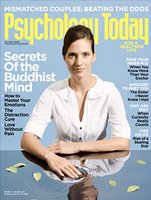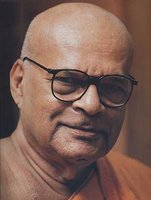“Have you ever seen still water?” Ajahn Chah would ask.
They would nod, “Yes, of course, we’ve seen still water before.”
Then Ajahn Chah would ask, “Well then, have you ever seen flowing
water?” And that also seemed a strange thing to ask. They’d respond,
“Yes, we’ve seen flowing water.”
“So, did you ever see still, flowing water?”
Ajahn Chah would then explain that the mind’s nature is still,
yet it’s flowing. It’s flowing, yet it is still. He would use the word
“citta” for the knowing mind, the mind of awareness. The citta
itself is totally still. It has no movement; it is not related to all
that arises and ceases. It is silent and spacious. Mind objects—
sights, sounds, smell, taste, touch, thoughts, and emotions—flow
through it. Problems arise because the clarity of the mind gets
entangled with sense impressions. The untrained heart chases
the delightful, runs away from the painful, and as a result, finds
itself struggling, alienated, and miserable. By contemplating our
own experience, we can make a clear distinction between the
mind that knows (citta) and the sense impressions that flow
through it.
By refusing to get entangled with any sense impressions,
we find refuge in that quality of stillness, silence, and
spaciousness, which is the mind’s own nature. This policy of
noninterference allows everything and is disturbed by nothing.
















































